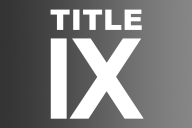You have /5 articles left.
Sign up for a free account or log in.

iStock
This is a season of traditions and making lists, and one way to combine the two is making a list of the most annoying Christmas music.
In a story last week on NPR’s All Things Considered, someone who used to program the music played in all the Calvin Klein stores around the world commented that the holiday season playlist was the most painful to construct. Clips from Paul McCartney’s “Wonderful Christmastime,” Burl Ives’s “Holly Jolly Christmas” and Madonna’s rendition of “Santa Baby” played in the background.
“Santa Baby” happens to make a list of the “10 Most Annoying Christmas Songs of All Time” recently published by the online magazine Salon. That list also includes Wham!’s “Last Christmas” and the most played holiday song of all, Mariah Carey’s “All I Want for Christmas Is You.”
Call me a Grinch, but the best thing about the arrival of Christmas is the departure of round-the-clock Christmas music on the radio. I like traditional carols, but I can’t listen to “The Little Drummer Boy” without wondering why Mary and Joseph would allow some kid playing the drums around their sleeping newborn.
My feelings about Christmas music may reflect deeper issues related to my choice of profession. I told a parent the other day that I’m not sure I ever enjoy the holiday season as much as I should because of all that happens in the office just prior. The person who wrote “tidings of comfort and joy” clearly didn’t work in a college counseling or college admissions office.
December seems much more sane that it used to be. I can remember when the busiest two weeks of the year were the weeks leading into the holiday break, rushing to write recommendations for students whose first deadline was Jan. 1. Of course, December is less frantic only because the acceleration of early deadlines has made October more frantic. I am also told by a friend who recently moved to the secondary side that this time of year is relaxed compared to what he experienced on the admissions side.
“More sane,” of course, is not the same thing as sane. A post last week on the e-list for ACCIS (Association of College Counselors in Independent Schools) provided insight into the stress and anxiety present at this time of year for students, parents and counselors as well as the ethical challenges posed by that stress.
A counselor reported that he had received an email message from a parent whose child is applying to an Ivy League institution with a restricted early-action plan. The parent wanted to know why the counselor hadn’t informed the family that another senior at the school, a legacy at the Ivy, was also applying early there. The email also stated that the family may have chosen to pursue a different early-application strategy if they had only known, and that the counselor’s failure to inform was setting the student up for a huge letdown.
This case raises a number of interesting issues and questions. Should a student’s/family’s decision about where to apply be influenced by where others are applying? How does a counselor balance protecting student privacy with providing appropriate information and context to help a student decide where to apply? Should anyone who applies to a hyperselective college or university be surprised or experience a huge letdown when they don’t get in?
The simple answer to the parent, of course, is that colleges admit students, not schools. The Ivies receive applications from more than 10,000 high schools in a given year, and the vast majority of those schools will receive no acceptances, but there will also be schools with multiple students admitted, so it is not the case that one applicant is competing against a classmate for admission. An applicant is competing against the entire applicant pool for a scarce resource.
The more complex answer is that applying early has always involved a tension between idealism and strategy. From its beginnings, early decision served at least partly as a kind of “sorting hat” to ensure that applicants to the Ivies from the “St. Grottlesex” group of prep schools that were major feeder schools were distributed in a way that served both the universities and the schools well. That might even be seen, to use a word ripped from today’s headlines, as a kind of collusion.
Today, applying early, whether early decision or restricted early action, has serious ramifications for a student. Many selective colleges admit a high percentage of the freshman class early, anywhere from 40 to 60 percent. The consequence is that admit rates in regular admission drop to single digits. Because a student can apply to only one college early decision, he or she dramatically decreases the chances of being admitted to other similarly selective institutions in regular admission.
That has led me to change the advice I give to my students applying to the most competitive schools, especially students who are unhooked. I used to advise students to apply early only if they had a clear first choice and had done enough research to be certain, and it used to drive me crazy when students would announce that they were applying early decision but hadn’t decided where. Now I have come to believe that any student with Ivy-type ambitions maximizes their chances (which might still be slim) by applying early. That can lead to discussions about whether to follow one’s dream or apply strategically.
That leads to a second issue. What is the counselor’s responsibility in this case? I see two principles at work here. One is the obligation to help the student make an informed decision. The other is the obligation to protect a student’s privacy.
In this case the two seemingly come into conflict, with the parent arguing that the counselor should have informed the family that the other student was applying as well. I think the privacy of the other student is the driving principle here. Every student’s college process is an individual journey, and the counselor’s role is to serve as trail guide and consigliere to the student and his family. In small school communities, it may become common knowledge where students are applying, but the counselor should not be part of the machinery spreading that news.
If the student or parent had asked if anyone else from the class was applying to the same university, the principle of truth should lead the counselor to answer yes. I don’t see an obligation to volunteer the information if not asked. Under no circumstances is it justifiable to tell the parent the name of the other student.
That leads to the final issue. Has the counselor set the student up for a huge letdown? All of us process college decisions from two different perspectives, one intellectual and the other emotional. Not getting in to an Ivy might be disappointing, but cause for a letdown? That’s like being let down upon learning that Frosty the Snowman isn’t real.
This is the final "Ethical College Admissions" column for 2018. Here’s to a good holiday season, whatever your holiday. In the words of Tiny Tim (the Dickens character, not the ukulele-playing 1960s novelty singer), “May God bless us, every one.”








